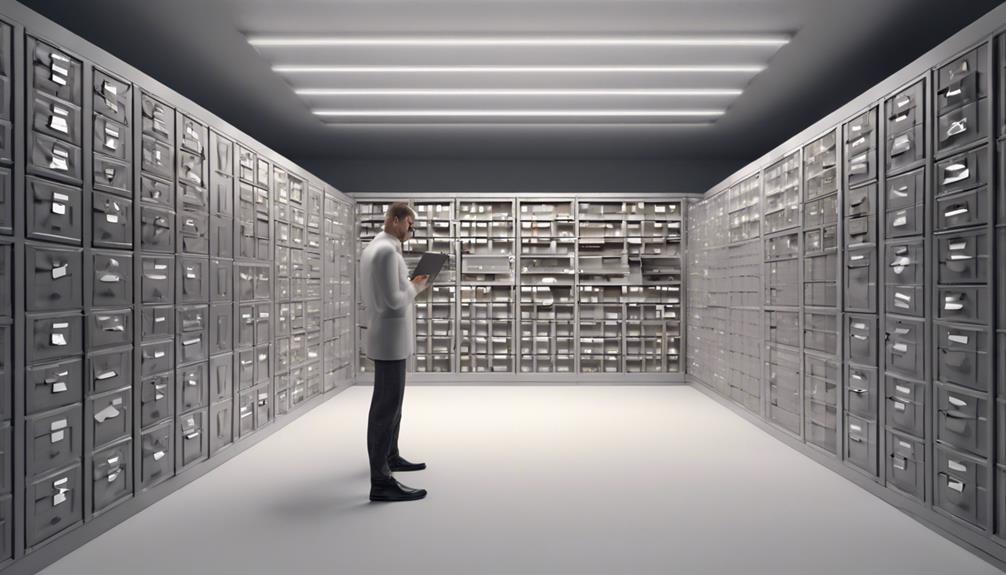
Archiving emails helps you keep your inbox manageable by reducing clutter, making it easier for you to spot important messages. It enhances email searchability and efficiency, ensuring you can quickly find what you need. By categorizing emails effectively, you create an organized library of your digital communication, saving time and reducing stress. It also ensures compliance with legal standards, protecting sensitive information through secure storage, and enabling easy data retrieval in the case of legal disputes or audits. Furthermore, archiving aids in server performance, ensuring smoother operations. Additionally, it prepares you better for unexpected data loss, emphasizing the importance of backup and recovery processes. You might discover even broader impacts and specific strategies that further illustrate why it's essential to maintain a well-archived email system.
Reducing Inbox Clutter
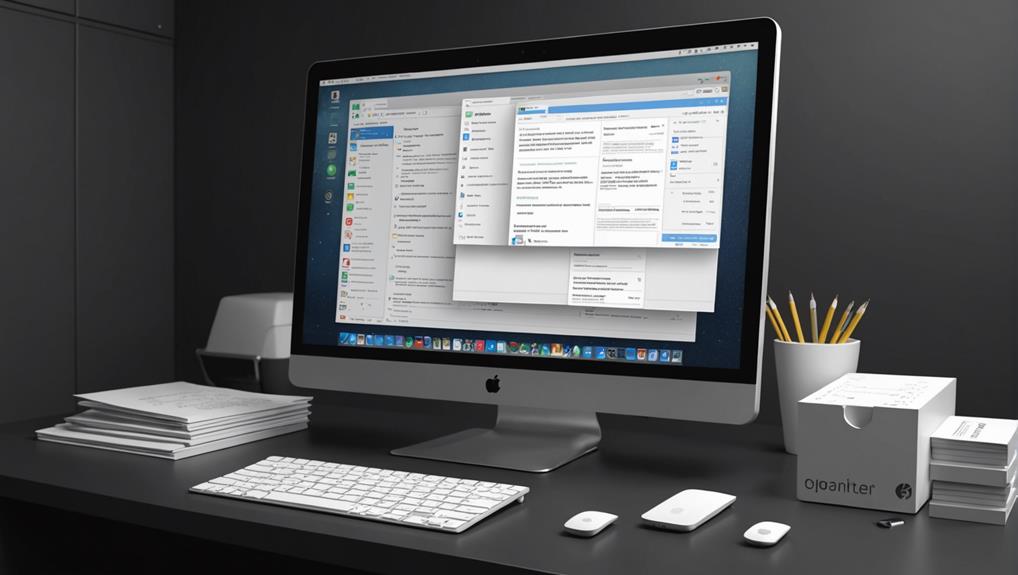
To reduce inbox clutter, you should regularly archive old emails that no longer require immediate action. It's like tidying up your digital room so you can focus more on what truly matters. When your inbox is overflowing, important messages can get lost in the shuffle, making you feel out of the loop. By archiving, you're not just cleaning up; you're ensuring you're in sync with your team and up-to-date on the latest developments.
Think of your inbox as a space where you interact with your community—your colleagues, friends, and family. You wouldn't want to miss out on important conversations because they were buried under old, irrelevant messages. Archiving helps maintain this space, making it welcoming and manageable. It's about staying connected and feeling part of the group, without the anxiety of sifting through a mountain of emails.
Enhancing Email Searchability
Archiving your emails not only tidies your inbox but also enhances searchability, making it easier to find important messages when you need them. Imagine being part of a community where everyone's contributions are easy to locate and reference. That's what you create in your digital world when you archive emails effectively.
By categorizing your archived emails, you're setting up a system where nothing important slips through the cracks. It's like having an organized digital library at your fingertips. You can quickly pull up past project details, important contacts, or that inspiring newsletter you wanted to share with a friend. It's all there, just a few clicks away, neatly stored in your personal archive.
This approach not only saves you time but also reduces the stress of sifting through a cluttered inbox. You're no longer digging through a pile of emails; you're simply retrieving what you need from a well-organized collection. This efficiency fosters a sense of competence and calm in your communication habits.
Join the savvy communicators who've realized that archiving isn't just about keeping a tidy email space—it's about ensuring nothing valuable is ever lost. Embrace this practice, and you'll feel more connected and in control of your digital communications.
Protecting Sensitive Information
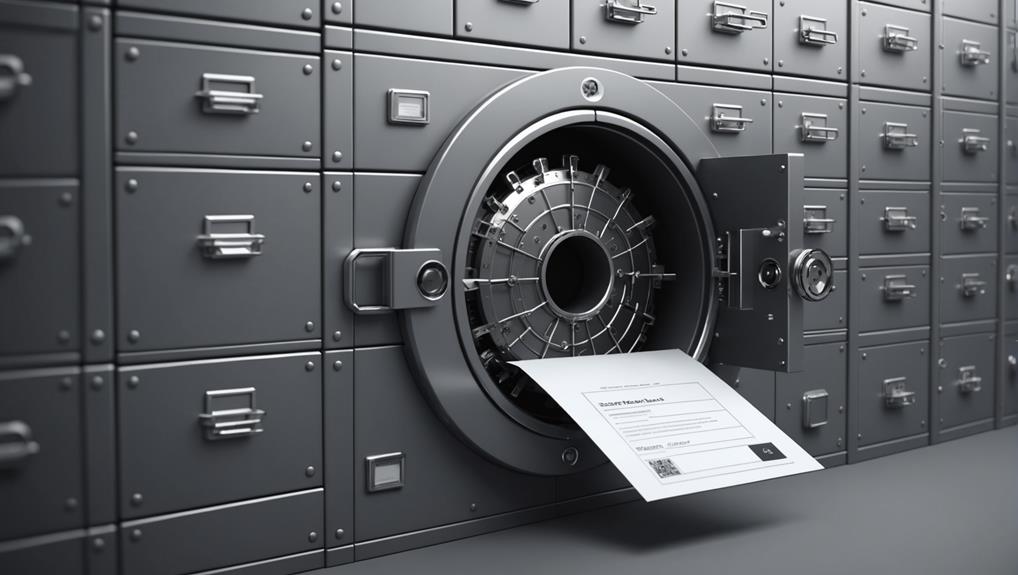
You often handle sensitive information in your emails, making it crucial to protect this data while archiving. Whether it's personal details, business strategies, or sensitive correspondences, the safety of this information can directly impact you and your community's wellbeing. Archiving isn't just about storage; it's about secure storage. Integrating robust encryption methods ensures that your data is shielded from unauthorized access. Think of it as building a digital vault where only you hold the key.
Moreover, setting up access controls plays a pivotal role. It's about ensuring that only those who genuinely need to know can peek inside your archived emails. This selective sharing fosters a trusted environment where everyone feels their private information is respected and safeguarded.
Don't forget the importance of regular audits and updates. As technology evolves, so do the methods to exploit it. Regular checks and updates ensure that your security measures are not just current but also effective.
Complying With Legal Requirements
When archiving your emails, it's crucial to comply with legal requirements to avoid potential legal consequences. Remember, you're part of a community that values integrity and transparency, and adhering to these standards ensures you're doing your part to uphold these values.
Different industries have specific regulations that dictate how long you must retain emails. For instance, in the healthcare sector, HIPAA laws require specific handling of patient information, which includes email retention for a minimum period. You're not just following rules; you're ensuring that sensitive information stays protected and accessible when needed.
Moreover, if you're involved in any legal disputes, archived emails can serve as evidence. This isn't just about protecting yourself; it's about maintaining a fair and just environment for everyone in your circle. Ensuring your email archiving practices meet legal standards means you're contributing to a larger framework of accountability and trust.
Improving Email Server Performance
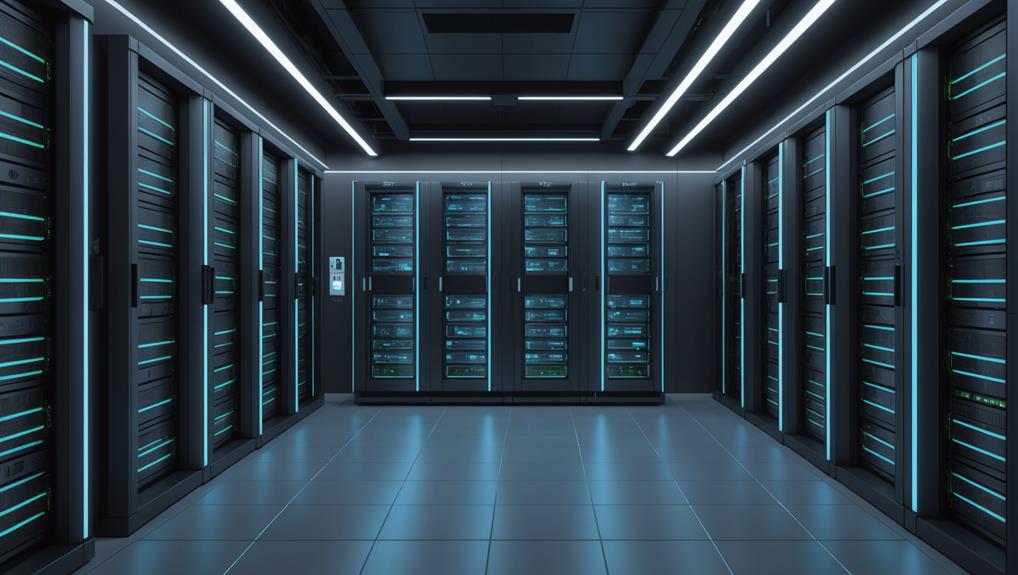
Shifting focus to enhancing your email server's performance, it's essential to consider how efficiently it handles the increased load from archived emails. When you're part of a team, every member's contribution counts, and the same goes for your email server. By archiving old emails, you're not just clearing up space; you're making sure that everyone's current tasks run smoother and faster.
Think of your email server as a garden that you all tend together. Just as removing weeds improves the health of the garden, archiving emails prevents unnecessary clutter from slowing down the server. This leads to quicker access times and less frustration for everyone trying to stay connected and productive.
Moreover, regularly archiving emails means your server isn't bogged down by old, irrelevant data. You'll notice improved server response times, which is crucial when you're closing deals or need quick replies. It's about ensuring that the tools at your disposal are as efficient as possible, so you can focus on what truly matters—growing together as a team.
Facilitating Backup and Recovery
Archiving your emails simplifies the backup and recovery process, ensuring quick restoration in case of data loss. Think of it as safeguarding your personal memories or professional achievements. Just as you wouldn't want to lose years of photos or essential documents, losing emails can set you back in ways you might not anticipate. By archiving, you're not just protecting data; you're preserving your peace of mind.
You're part of a community that values security and continuity. When disaster strikes—whether it's a server failure or a malware attack—having an archive means you're steps ahead. You won't be scrambling to recover lost emails or risking significant disruptions to your workflow. Instead, you'll restore your archived emails swiftly, getting back on track with minimal fuss.
It's about being proactive rather than reactive. By setting up an archiving system, you join others who prioritize preparedness and resilience. You ensure that you're never left out of the loop, always ready to bounce back. This practice doesn't just protect your emails; it strengthens your standing in a community committed to safeguarding its data. Isn't it comforting to know you're not alone in this?
Separating Current and Historical Data
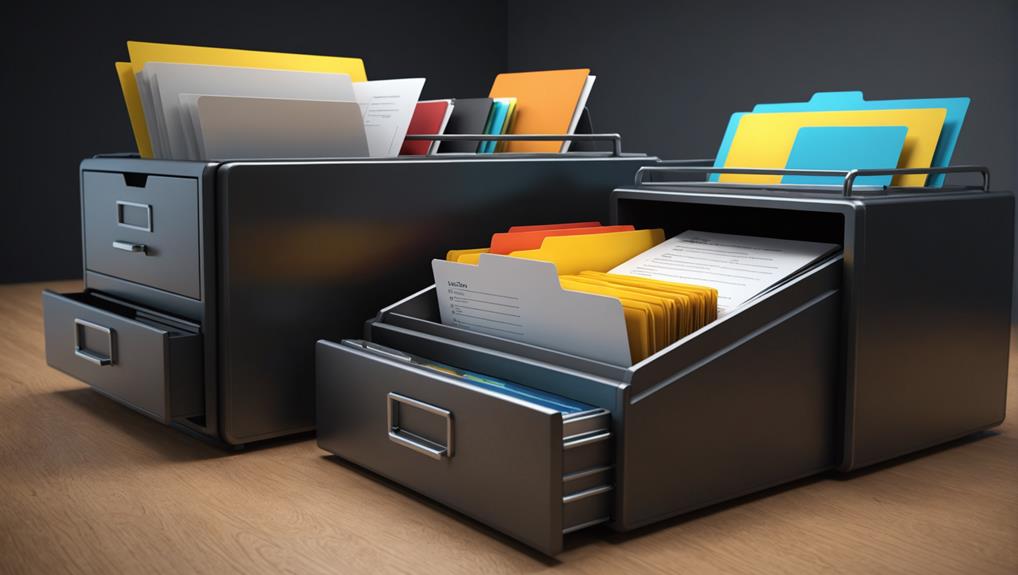
Separating current from historical data helps you organize and access your emails more efficiently. It's like sorting your ongoing projects into one drawer and older, completed files into another. This way, you're not sifting through years of completed work just to find the details about your current tasks. It's all about making your daily email interaction as smooth as possible.
When you archive old emails, you're ensuring that your inbox remains a space for immediate action and current conversations. Think of it as your own dedicated workspace—clutter-free and organized. You'll feel more in control and part of a well-oiled machine, not bogged down by unnecessary distractions.
Furthermore, this separation supports a sense of community within your workplace or amongst your team. Everyone knows where to find the information they need without having to ask around too much. It's about fostering an environment where resources are easy to access and communication flows freely. You're not just managing emails; you're enhancing collaborative efforts and ensuring that no one feels out of the loop.
Implementing this practice not only boosts your efficiency but also reinforces your role as a proactive, integral member of your group. You'll notice the difference immediately—less time searching, more time doing.
Archiving as a Record-Keeping Tool
You'll find that using email archiving as a record-keeping tool significantly enhances your ability to track and retrieve important historical data. It's like creating a shared memory bank for your team or organization, making sure everyone's on the same page. This shared access not only fosters a sense of unity but also ensures that all members have the same historical reference points, which is crucial during project reviews or when onboarding new team members.
Imagine being able to pinpoint the exact conversation or decision that led to a major milestone. With everything archived and indexed, you're never more than a few clicks away from the information you need. It's about making sure you're not losing valuable insights or forgetting critical elements of your projects.
Moreover, in your collaborative efforts, this tool becomes invaluable. Everyone knows they can rely on the archive to provide context and continuity. Whether it's resolving disputes, checking precedents, or simply catching up on missed communications, you've got a reliable repository at your disposal. It's not just about storing emails; it's about keeping the collective memory alive and accessible, helping everyone feel connected and informed.
Benefits for Personal Email Management
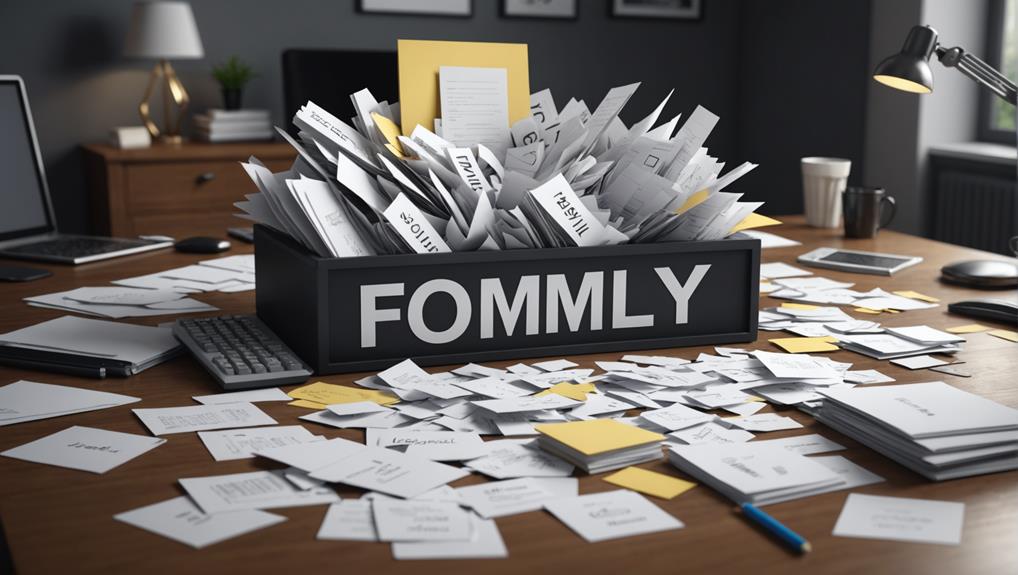
While archiving emails in a professional setting enhances teamwork, managing your personal emails effectively ensures you never miss a critical update or lose important correspondence. Think of your inbox as a bustling community center. Just like you'd sort through community notices, archiving helps you organize these virtual messages, ensuring you're always in the loop, connected to every important event or personal message that matters to you.
By setting aside emails that aren't immediately necessary but still valuable, you're crafting a personal archive where memories, bills, and conversations aren't just clutter—they're well-kept records of your life's interactions. This not only saves you time when you need to revisit an old conversation or document but also reduces stress, knowing that you've got everything sorted out.
Moreover, this practice keeps your primary inbox clean and manageable, highlighting what's urgent and needs your attention now. It's like having a tidy room where everything has its place, making it easier for you to feel at home and in control. You belong to a network of communication, and by keeping this network organized, you ensure that you're never out of touch with the parts of your digital life that truly matter.
Conclusion
You've seen how archiving emails can streamline your inbox and protect vital information. By keeping your server performance optimal and ensuring compliance with legal standards, you're setting yourself up for less stress and more efficiency. Whether it's separating current from historical data or just making searches easier, archiving is a smart move. Remember, it's not just about tidying up; it's about safeguarding your digital history and enhancing your email management strategy.






